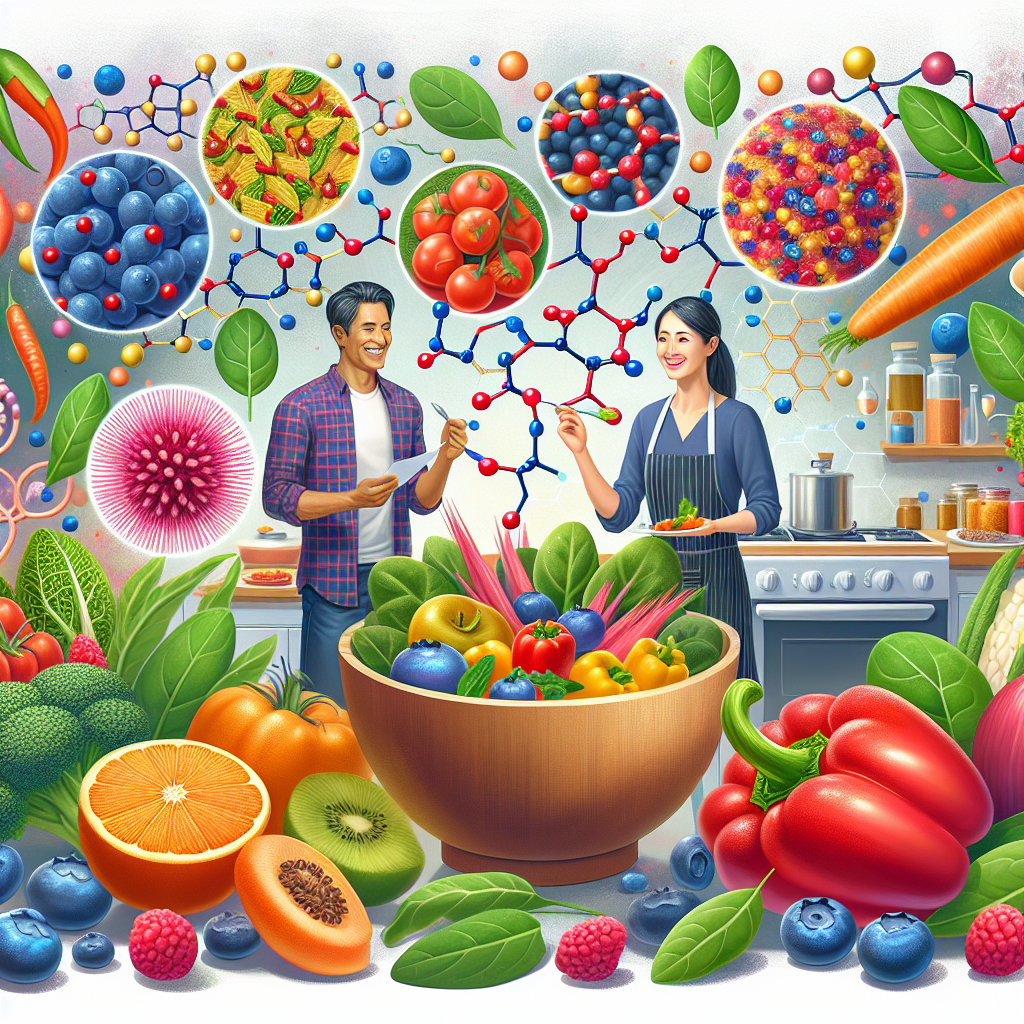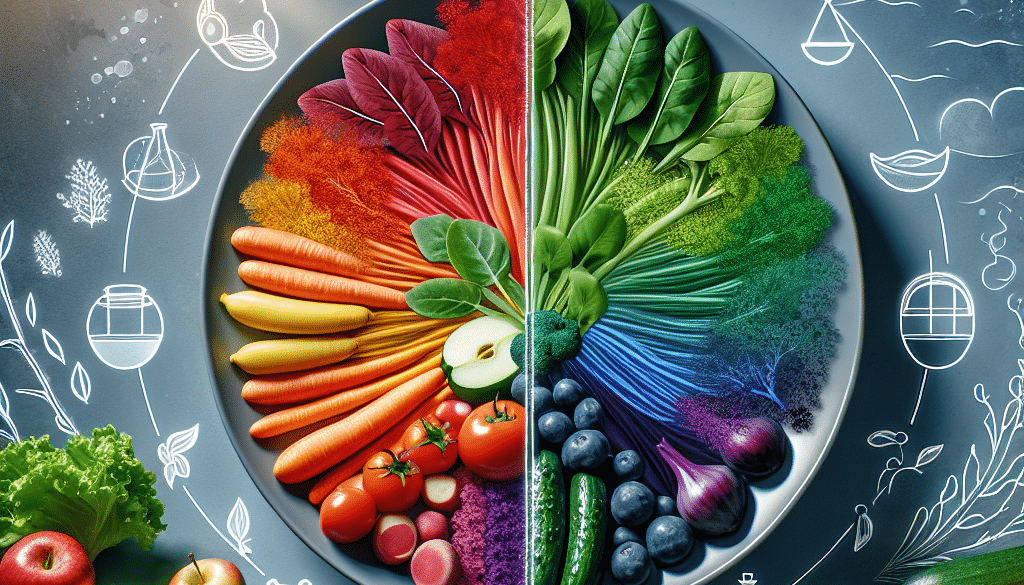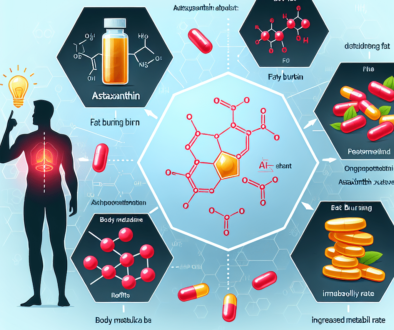Astaxanthin: Elevating Plant-Based Diets
-
Table of Contents
- Astaxanthin: A Powerhouse Antioxidant for Plant-Based Diets
- Understanding Astaxanthin and Its Sources
- The Health Benefits of Astaxanthin
- Integrating Astaxanthin into a Plant-Based Diet
- Case Studies and Research on Astaxanthin
- Conclusion: The Role of Astaxanthin in Plant-Based Wellness
- Enhance Your Plant-Based Diet with ETprotein’s Protein Products
Astaxanthin: A Powerhouse Antioxidant for Plant-Based Diets

As the world becomes increasingly health-conscious, plant-based diets are gaining popularity for their numerous health benefits and environmental sustainability. However, one of the challenges of maintaining a plant-based diet is ensuring that it includes all the necessary nutrients for optimal health. Astaxanthin, a potent antioxidant, has emerged as a valuable addition to plant-based diets, offering a range of health benefits that can enhance overall well-being. In this article, we will explore the role of astaxanthin in elevating plant-based diets, supported by relevant examples, case studies, and statistics.
Understanding Astaxanthin and Its Sources
Astaxanthin is a naturally occurring carotenoid pigment responsible for the vibrant red-orange color found in certain algae, yeast, salmon, trout, krill, shrimp, and other seafood. It is a powerful antioxidant that is known for its ability to neutralize free radicals and protect cells from oxidative damage. Unlike other antioxidants, astaxanthin does not become pro-oxidant in the body, making it a superior choice for combating oxidative stress.
While astaxanthin is predominantly found in marine organisms, it can also be sourced from the microalgae Haematococcus pluvialis, which is a suitable option for those following a plant-based diet. This microalgae is cultivated in controlled environments, ensuring a sustainable and vegan-friendly source of astaxanthin.
The Health Benefits of Astaxanthin
Astaxanthin’s health benefits are vast and well-documented. Here are some of the key advantages of incorporating astaxanthin into a plant-based diet:
- Powerful Antioxidant Properties: Astaxanthin is believed to be several times more potent than other antioxidants like vitamin E and beta-carotene, providing robust protection against cellular damage.
- Supports Eye Health: Studies have shown that astaxanthin can help reduce the risk of eye diseases such as age-related macular degeneration, cataracts, and glaucoma.
- Enhances Skin Health: Its antioxidant properties may help protect the skin from UV damage, improve skin elasticity, and reduce the appearance of fine lines and wrinkles.
- Boosts Athletic Performance: Astaxanthin has been linked to improved endurance, reduced muscle damage, and faster recovery times in athletes.
- Anti-Inflammatory Effects: It may help reduce inflammation, offering potential benefits for individuals with inflammatory conditions.
- Supports Cardiovascular Health: Astaxanthin can contribute to heart health by improving blood flow and reducing oxidative stress in the cardiovascular system.
Integrating Astaxanthin into a Plant-Based Diet
For those on a plant-based diet, integrating astaxanthin is straightforward. It can be consumed as a dietary supplement in the form of capsules or tablets derived from Haematococcus pluvialis. Additionally, some plant-based foods are fortified with astaxanthin, and its use in functional foods and beverages is on the rise.
When selecting an astaxanthin supplement, it is essential to choose a high-quality product that specifies its vegan source. The recommended dosage of astaxanthin varies, but most studies suggest that daily doses of 4-12 mg are safe and effective for most individuals.
Case Studies and Research on Astaxanthin
Several studies have highlighted the benefits of astaxanthin. For instance, a randomized double-blind study published in the Journal of Cosmetic Dermatology found that astaxanthin improved skin elasticity and hydration in middle-aged women. Another study in the Journal of Sports Medicine and Physical Fitness reported that astaxanthin supplementation enhanced endurance and reduced fatigue in competitive cyclists.
Statistics also support the growing interest in astaxanthin. The global astaxanthin market size was valued at USD 647.1 million in 2020 and is expected to expand at a compound annual growth rate (CAGR) of 16.3% from 2021 to 2028, indicating a rising demand for this potent antioxidant.
Conclusion: The Role of Astaxanthin in Plant-Based Wellness
In conclusion, astaxanthin is a valuable addition to plant-based diets, offering a range of health benefits that can enhance the quality of life for those who choose to forgo animal products. Its potent antioxidant properties, coupled with its ability to support various aspects of health, make it an essential nutrient for anyone looking to optimize their plant-based diet. As research continues to uncover the full potential of astaxanthin, its role in promoting health and wellness is likely to become even more significant.
Enhance Your Plant-Based Diet with ETprotein’s Protein Products
If you’re looking to elevate your plant-based diet further, consider incorporating ETprotein’s high-quality protein products. ETprotein offers a diverse range of organic bulk vegan proteins that are non-GMO, allergen-free, and characterized by a neutral taste. Their products, including Organic rice protein, clear rice protein, pea protein, clear pea protein, and various seed proteins, provide excellent nutrition and are perfect for anyone following a plant-based diet.
In addition to protein products, ETprotein also supplies L-(+)-Ergothioneine (EGT) in various grades suitable for nutraceutical, pharmaceutical, cosmeceutical, and food and beverage applications. With purity over 98%, ETprotein’s EGT offerings can help support your health and wellness goals.
As a trusted supplier for leading global brands, ETprotein is committed to delivering the highest quality products to meet your protein needs. To learn more about their offerings or to sample their products, please contact sales(at)ETprotein.com today.
About ETprotein:
ETprotein, a reputable protein and L-(+)-Ergothioneine (EGT) Chinese factory manufacturer and supplier, is renowned for producing, stocking, exporting, and delivering the highest quality organic bulk vegan proteins and L-(+)-Ergothioneine. They include Organic rice protein, clear rice protein, pea protein, clear pea protein, watermelon seed protein, pumpkin seed protein, sunflower seed protein, mung bean protein, peanut protein, and L-(+)-Ergothioneine EGT Pharmaceutical grade, L-(+)-Ergothioneine EGT food grade, L-(+)-Ergothioneine EGT cosmetic grade, L-(+)-Ergothioneine EGT reference grade and L-(+)-Ergothioneine EGT standard. Their offerings, characterized by a neutral taste, non-GMO, allergen-free attributes, with L-(+)-Ergothioneine purity over 98%, 99%, cater to a diverse range of industries. They serve nutraceutical, pharmaceutical, cosmeceutical, veterinary, as well as food and beverage finished product distributors, traders, and manufacturers across Europe, USA, Canada, Australia, Thailand, Japan, Korea, Brazil, and Chile, among others.
ETprotein specialization includes exporting and delivering tailor-made protein powder and finished nutritional supplements. Their extensive product range covers sectors like Food and Beverage, Sports Nutrition, Weight Management, Dietary Supplements, Health and Wellness Products, and Infant Formula, ensuring comprehensive solutions to meet all your protein needs.
As a trusted company by leading global food and beverage brands and Fortune 500 companies, ETprotein reinforces China’s reputation in the global arena. For more information or to sample their products, please contact them and email sales(at)ETprotein.com today.













